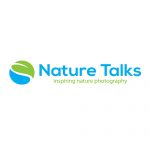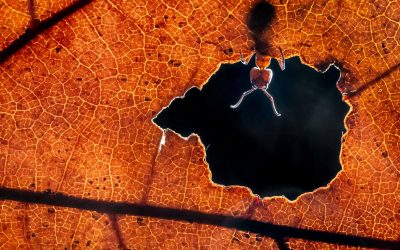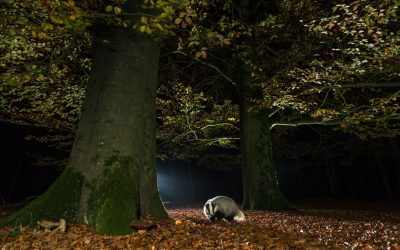What if you could show the general public that every bird is a personality? Would that help more people give birds the respect they deserve, since we humans tend to respect an individual’s personality more than the one-of-a-million-in-the-flock?
To get an answer to that question, I interviewed the Norwegian nature photographer Terje Kolaas, overall winner of the NPOTY contest 2021. For Terje Kolaas, birds have always been his living and profession since his adult years. In 2006, he established the study “Bird Identification” at Nord University, where he still teaches. Furthermore he guides photographers and birdwatchers around all of Norway, most often in his home county Trøndelag and the for photographers well known Dovrefjell and Varanger. And besides that he likes to travel a lot and needs time to photograph birds.
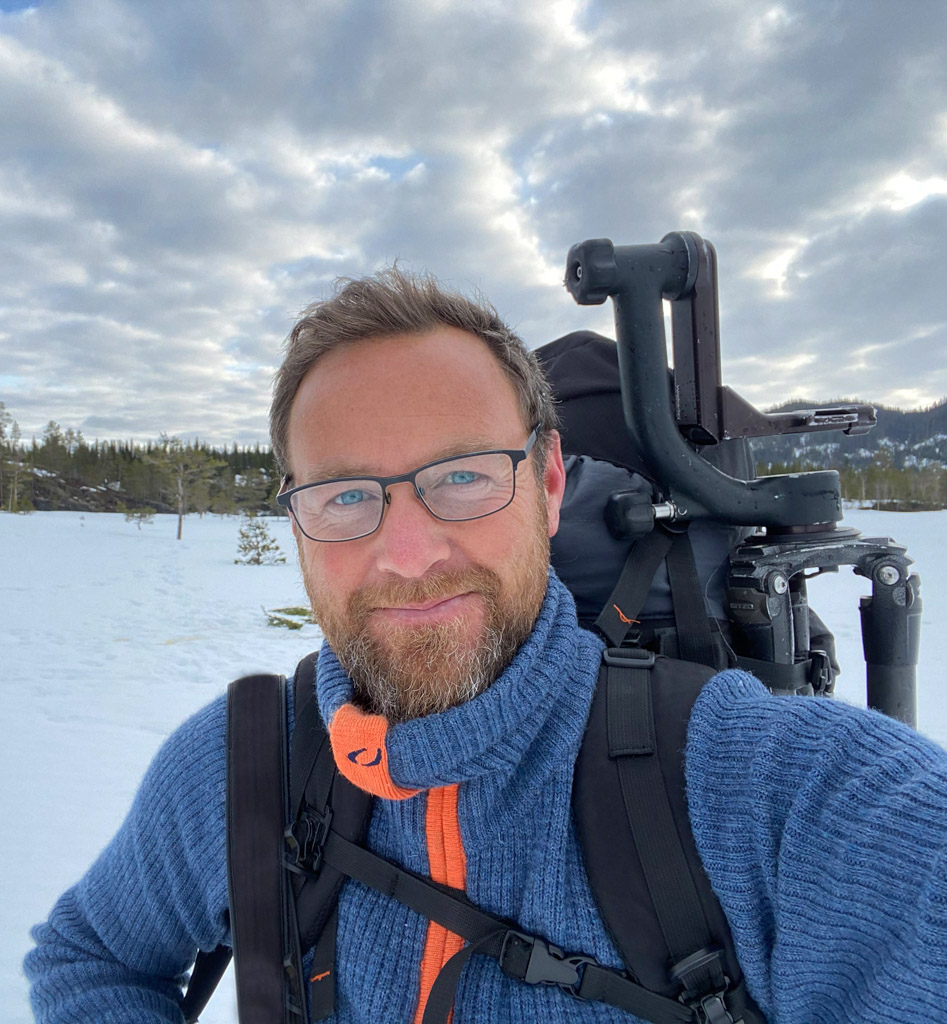
He has published three books about birds, among those the textbook ‘Flying motives – the art of photographing birds’ in 2011, a book he co-authored with his cousin Christian Tiller. Time to get to know this passionate and versatile birdlover and photographer a bit better.
Terje Kolaas lives on Ytternesset in the town of Levanger. The house is located close to the Trondheimsfjord and is surrounded by birds on all corners, among those the Pink-footed Geese which was the motive of his winning photo. The love for birds started at the age of 11 when he joined his already mentioned older cousin Christian Tiller, who came to watch a rare bird. Christian brought along some friends from the ornithological community in Trondheim, together with binoculars, telescopes and tough cameras which made a huge impression on Terje Kolaas. This experience made him decide to join the Norwegian Ornithological Society.
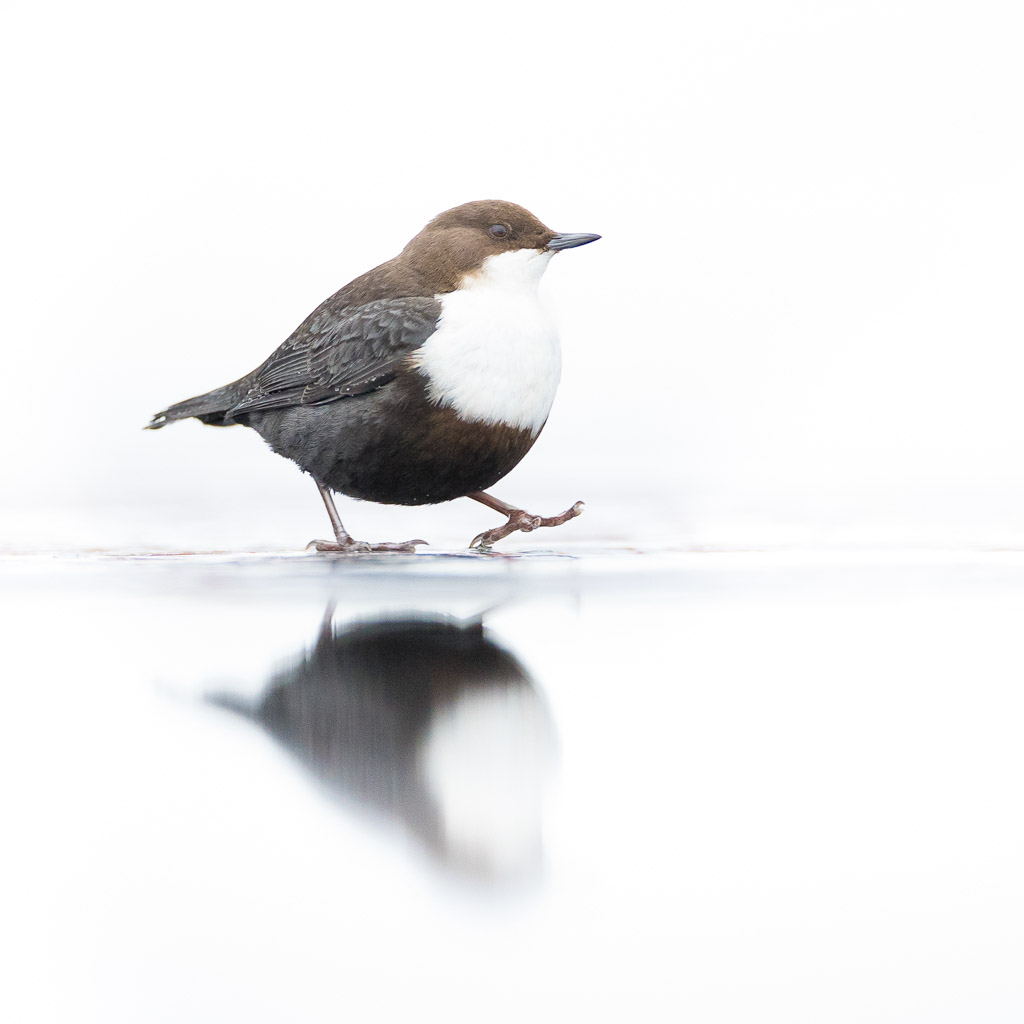
White-throated Dipper, Terje Kolaas
Since then Terje Kolaas was hooked on birds. He spent the available time before and after school with binoculars and a camera in the nearby woods. As a 12-year-old he bought his first SLR camera, a well-used and fully manual Yashica. He started out documenting what he saw and enjoyed taking good species photos. He developed his own black and white film and photos on his parents bathrooms. And at the age of 13 he wrote his first report on birds in Staupshaugen, his local forest, on an old-fashioned typewriter.
In the years that followed both the interest in birds and photography developed. Terje Kolaas learned more and more about different bird species, where he could find them and what he had to watch out – and not least listen up – for. He became interested in conducting photography in such a way that he disturbed as little as possible.
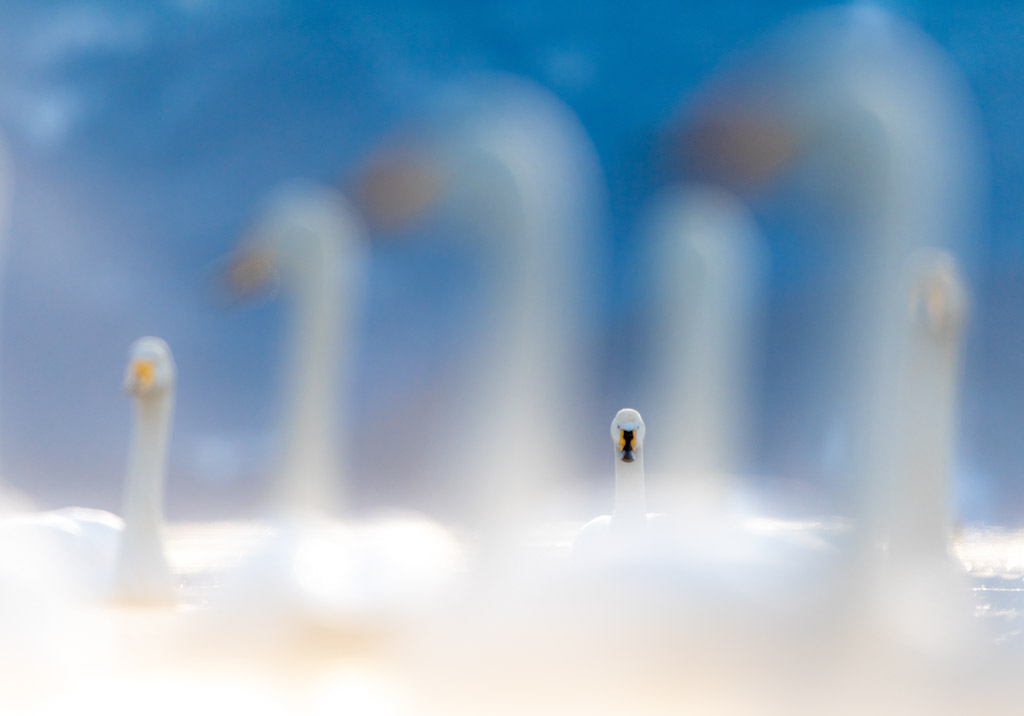
Whooper Swans, Terje Kolaas
Inspiration
“From the first day my parents encouraged me to continue my interest in birds. I remember my father took me in our sailboat all the way down to Runde to watch Puffins – it took us two weeks to get there, but we saw Puffins! One other occasion he took me for a birding trip to Jomfruland in Telemark, 2000 kilometers away from home.
But my cousin and very good friend Christian Tiller has been my number one inspiration since he introduced me to birdwatching and photography back in 1989. We have evolved together as bird watchers and photographers and to a great extent shared the same opinions and tastes when it comes to photography. He was also my number one travel companion over the years until he passed away way too young in February 2021. I still miss him every day”.
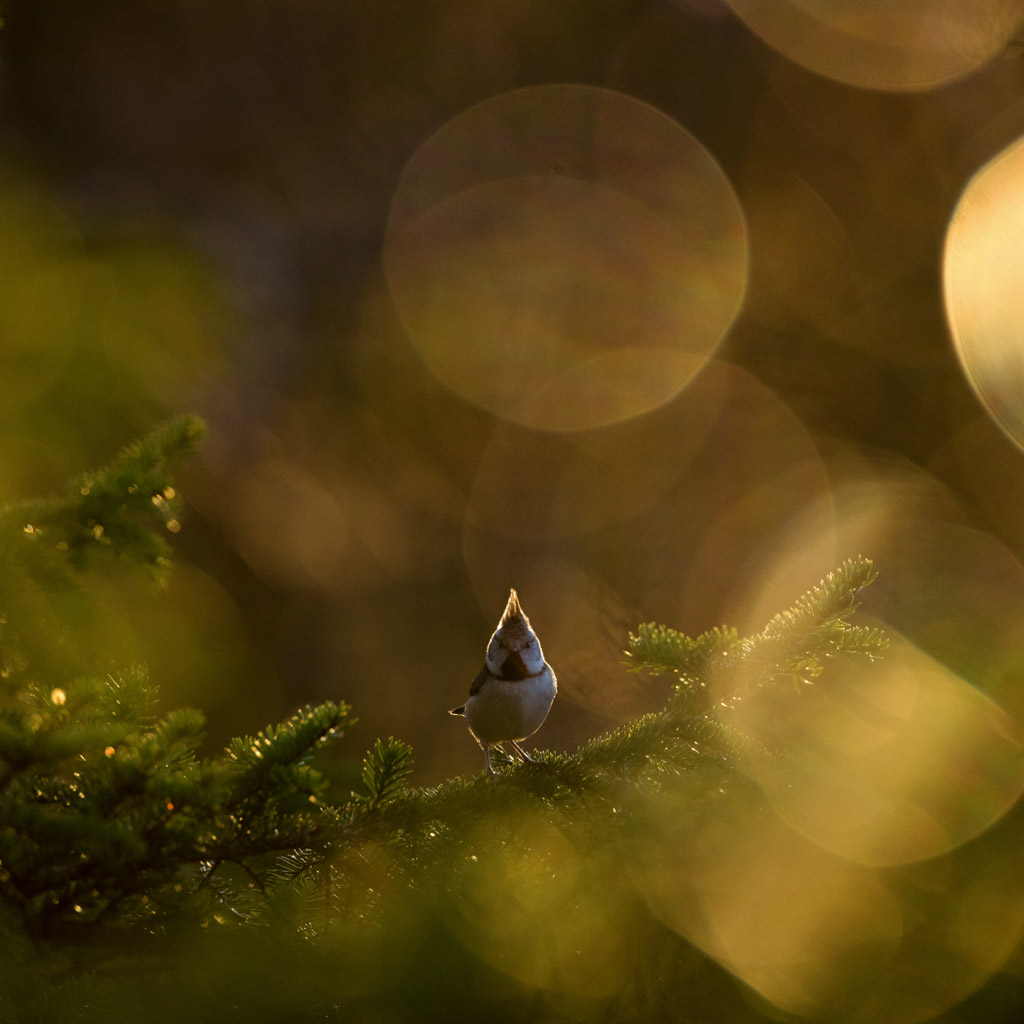
European Crested Tit, Terje Kolaas
Inspiring photographers
“Among other inspirations I want to point out the German nature photographer Klaus Tamm. In the early 2000s I had the privilege to guide him to my local Great Snipes and Pygmy Owls. The photos he came back with simply blew my mind and made me look at bird photography with new eyes. The techniques he used to create blurry foregrounds and backgrounds and the way he filled his frames with blurry content rather than “boring” empty space inspired me. Since that day my photography has evolved from traditional documenting “bird on a stick” to more creative and artistic work, I guess.
I consider Instagram as another source of inspiration. There are so many great photographers out there and every day I see pictures that inspire me and make me wish they were mine. Today’s challenge is to create something new and unique and Instagram is constantly reminding me of that. Challenging myself to try and learn new things, even if other photographers have done it before me, instead of constantly relying on my ingrained habits and patterns, is very helpful and important to evolving as a photographer.”
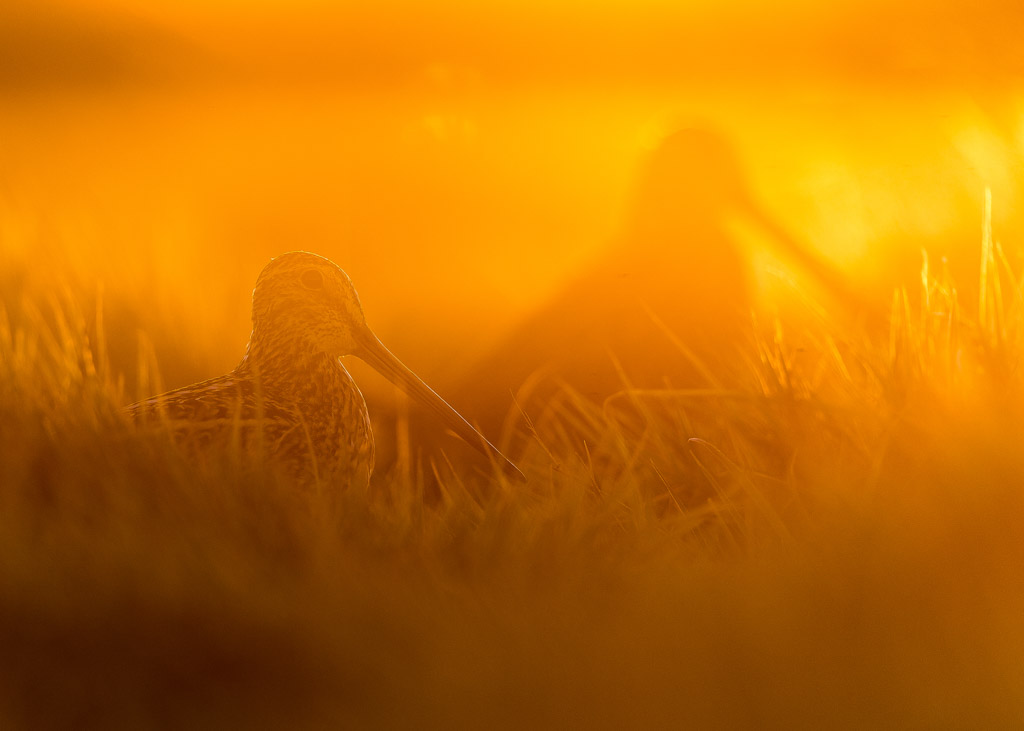
Great Snipe, Terje Kolaas
Signature
“I am not sure if I can point out one certain signature of my work or my style – I try to be an “allround” bird photographer and to manage several genres. But it is crucial to me that my images are clean and well balanced. I often go minimalistic and try to avoid anything that doesn’t add anything positive or interesting to the photo, the fewer elements the better. The bird must stand out from the surroundings. The bird and the bird’s personality are the most important and nothing in the photo should distract from that unless it contributes to something good compositionally. I also like repetitions and patterns, such as the shape of another bird in the foreground or background, bokeh balls, symmetry and balance. I like negative space, whiteouts and blackouts. I prefer soft natural light, but also like backlighting and the patterns and silhouettes that can be created with backlighting. In the end I try to create beautiful photos that can decorate someone’s wall. If I manage to take a ‘wall photo’, I am happy.
My collaboration with the interior designer Halvor Bakke, a well-known influencer who is also the host of ‘Adventurous renovation’ on the Norwegian Television, have had great influence on my photographic style. Halvor wanted to use my photos in the program and this has forced me to think differently. It implied my pictures should be decorative and creative to a greater degree rather than rare and documentary, as the traditional bird picture often is. Delivering pictures for this television program has now become part of my income.“
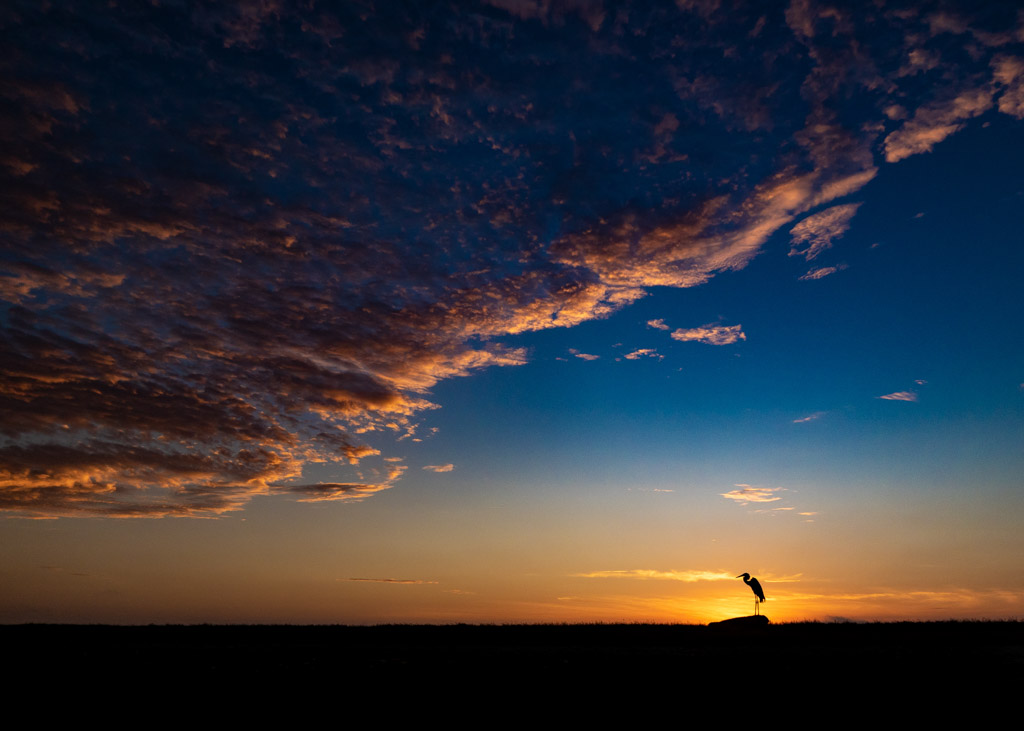
Great Egret, Terje Kolaas
Preparation
“For me, shooting while traveling follows the same principles as shooting at home. The point is to capture the bird in a beautiful setting. Many times I have seen photos taken in a particular destination and want to do something similar. Or I get an idea about something that is possible but has not yet been done with that particular bird species. Those are aspects that make me choose a destination.
When I travel abroad, I find myself torn between my desire to watch new and exciting bird species and the joy of photographing. Therefore, many of my travels are less productive photographically than if I were spending the same amount of time at home shooting.
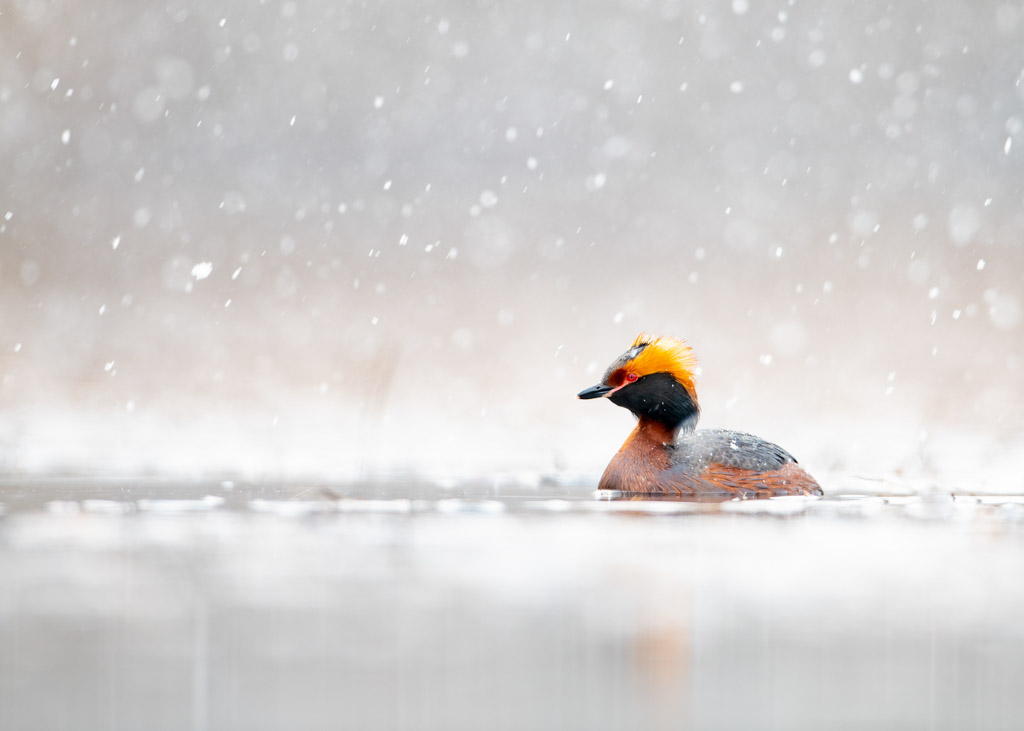
Horned Grebe, Terje Kolaas
When I travel for bird photography, I am always focused on specific birds or specific circumstances. Because of ‘my taste’ of photography, in which clean images are my goal, I prefer to go to places where those kinds of photos are possible. Traveling to open snowy or sandy landscapes where there are many birds is perfect. In that regard, nothing beats the Falkands so far. Hokkaido in Japan in winter is also amazing as well as the sand dunes of Morocco or Namibia. But as said before, I am most productive at home, where I know every corner and every bird in my surroundings.“
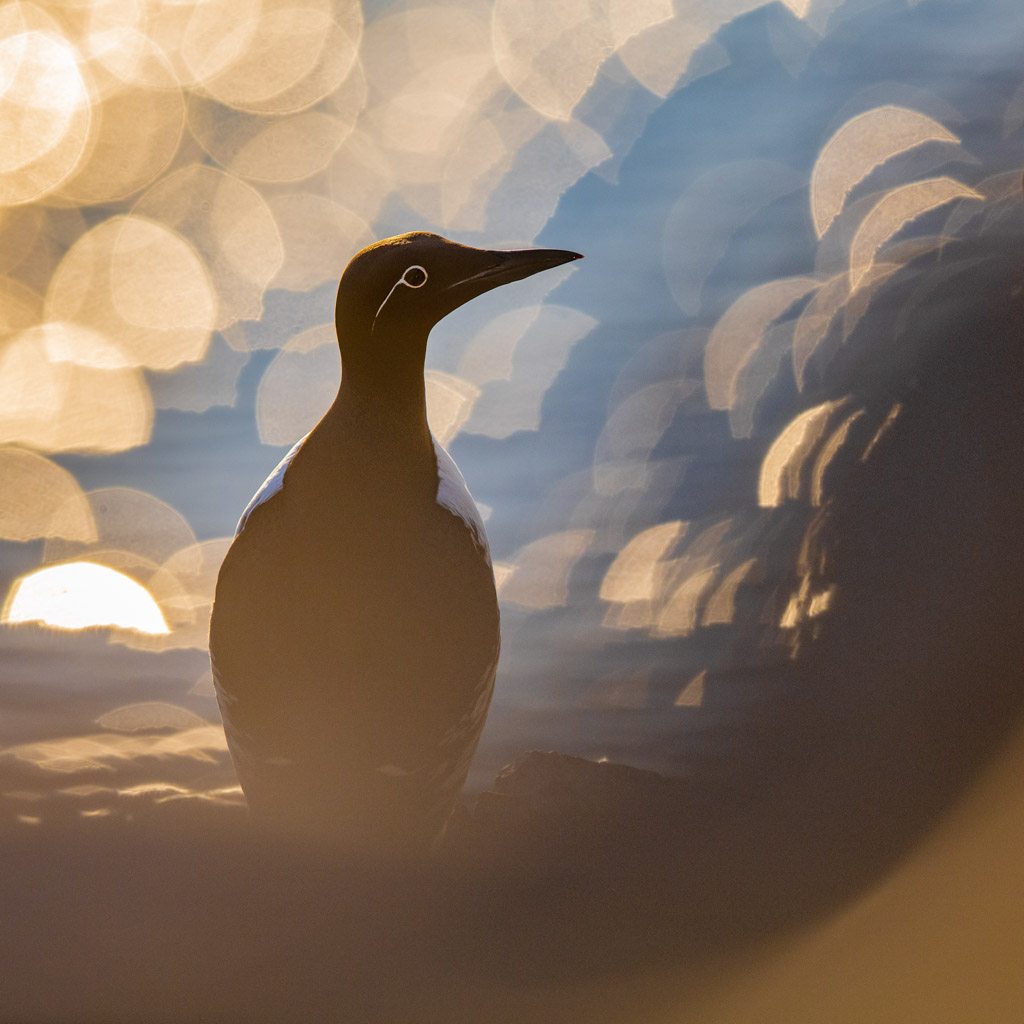
Common Guillemot, Terje Kolaas
Ambition
“I photograph birds because I love spending time with them, so that is my main drive. I started as a birdwatcher and used photography to document the birds I observed. I am still a birder, but spend way more time photographing than birding these days.
Photographing birds means hours and days with waiting and observing and learning to know the birds to get the photos I want. And the more time I spend with them, the more I admire and respect birds. They are incredible creatures managing incredible stuff every day in their life. Think of bird migration; the unbelievable achievement it is for that Great snipe in front of me to fly for three days and 7000 kilometers nonstop from the mountains of Levanger where I live to central Africa. Twice a year! Or the effort they do every night during summer, when the males gather for nocturnal fights to impress the females. And let not forget the enormous effort it takes to survive every day and most important of all; to manage to breed.
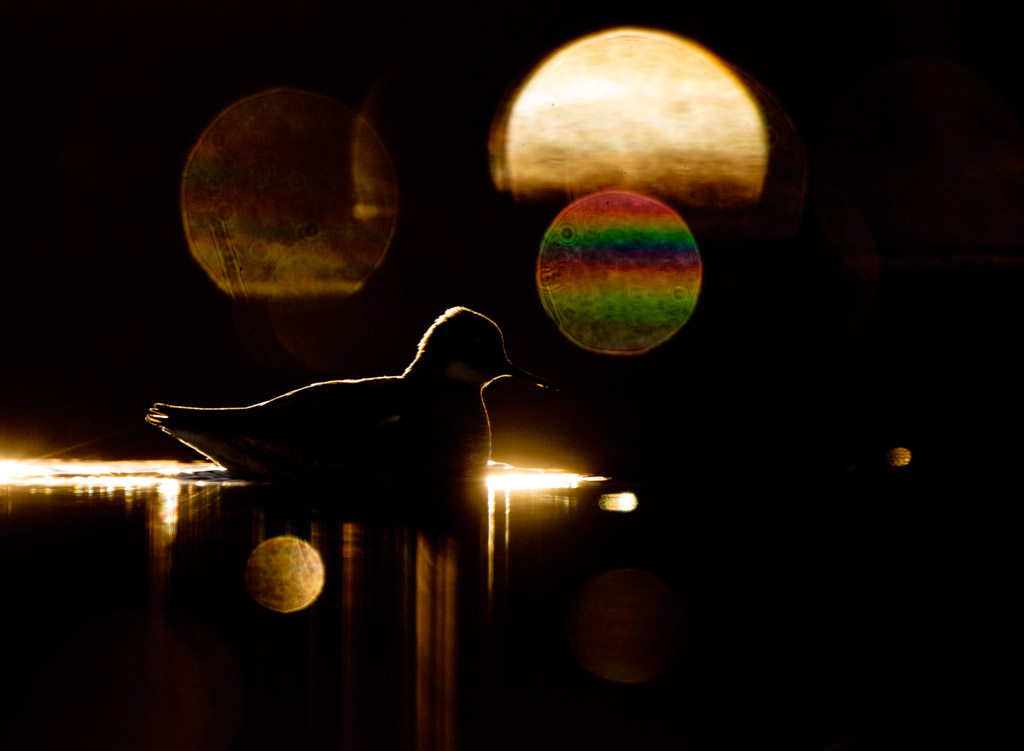
Red-necked Phalarope, Terje Kolaas
It is nice to have the opportunity to share all those great moments I have with birds with “the rest of the world”. There are so many amazing birds and most people don’t even know they exist. Nobody cares about something they don’t know exists. So by publishing and distributing compelling bird photos, I hope to get some people interested in birds and bird conservation. And by taking pictures that most people find ‘beautiful’ instead of going for documentary pictures of rare and exclusive birds, I hope to reach ’the man on the street’ instead of the bird watchers and people who already have a lot of knowledge.
My collaboration with Halvor Bakke has contributed a lot to bringing ‘birds to the people’. His TV show has brought ‘birds as art and fashion’ to hundreds of thousands of viewers who are primarily interested in fashion and not birds.“
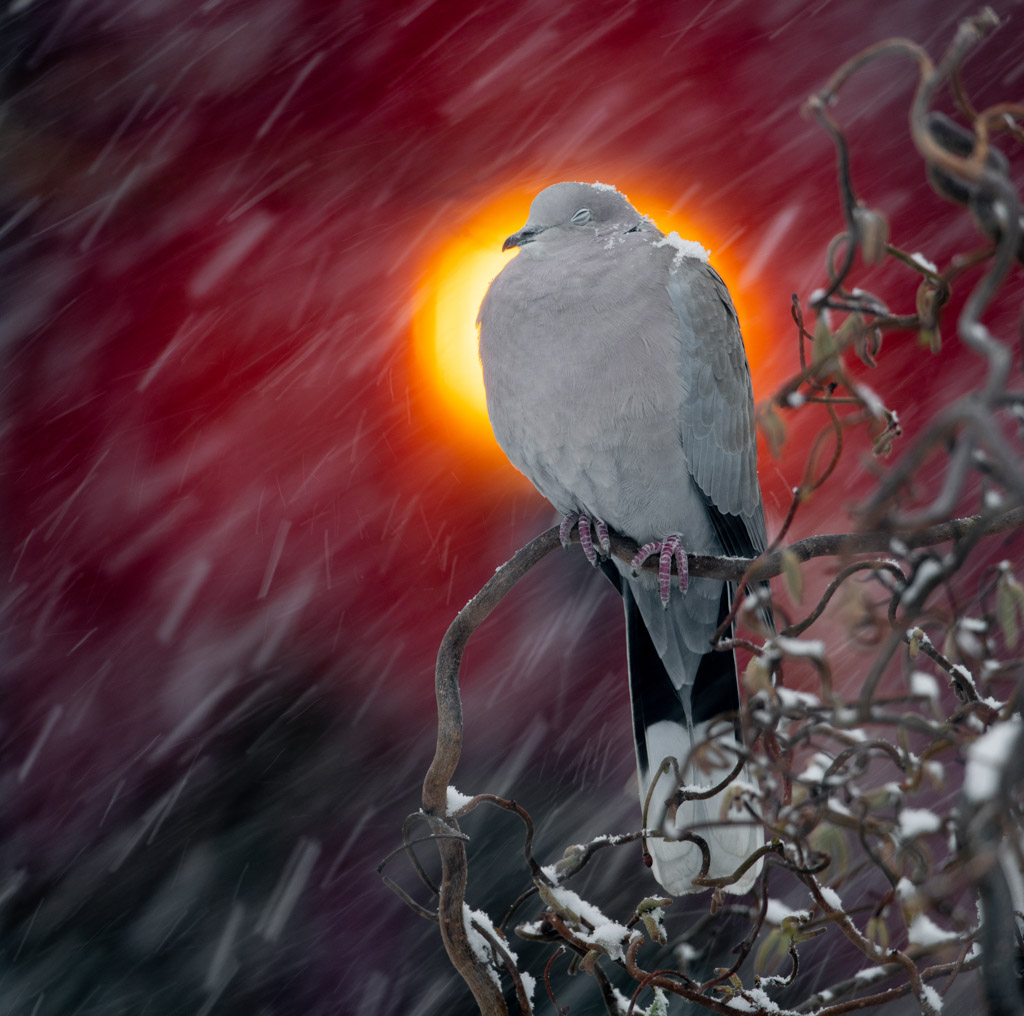
Eurasian Collared Dove, Terje Kolaas
Photography contest
“ I entered my first competition ever in 2020, so competitions have never been a motivation for my photography. But participating in photography competitions – and certainly winning this 2021 edition of the Nature Photographer of the Year competition – has been a very good experience for me. I tend to think my own photos are not as cool as so many others out there, but winning this contest means that at least this one time the judges disagree with me on this photo. It is nice to get confirmation and to be recognized by fellow wildlife photographers. The competition is tough so being the overall winner in NPOTY is still incredible for me.
😊
With the current social media and filters and manipulation techniques etcetera it is difficult to find photos that are still ‘real’. The rules judges follow when reviewing competition entries provide an important guarantee that the winning photos have not been manipulated or filtered. Their question for the RAW files confirms this. And the fact that the jury always thoroughly examines the ethics of a photo guarantees that the winning photos comply with the ethical rules.
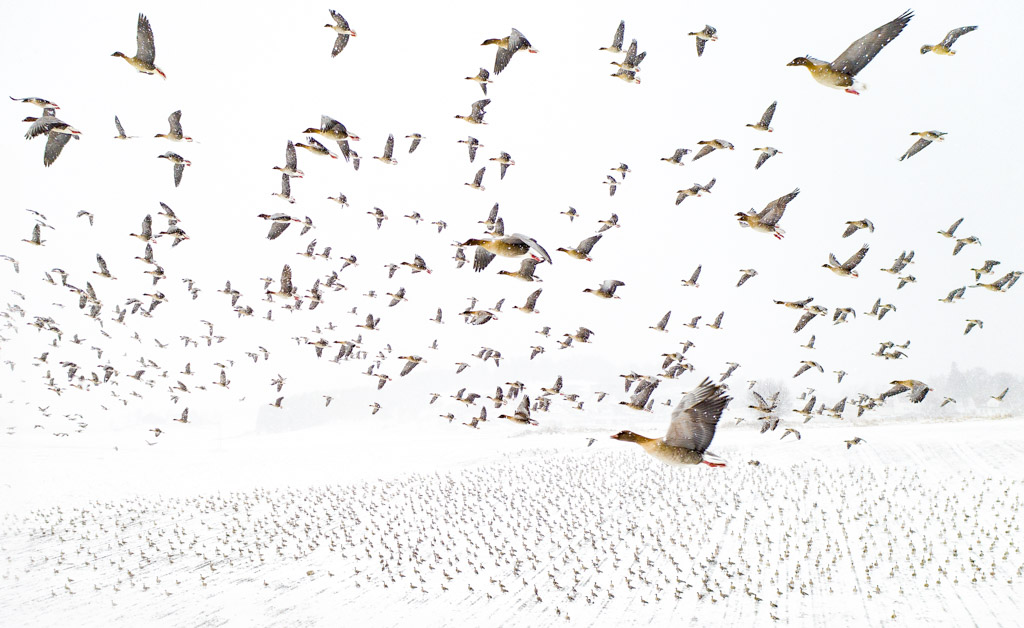
Pink-footed Geese, Terje KolaasThe ethics of my winning photo of the geese has of course been discussed within the jury. Disturbing birds as a result of photography should never occur, whether by drone or in any other way. I described my working method for the jury and showed the requested photos that were taken before, during and after the session. These photos proved that the birds behaved normally and were not disturbed by the drone.
Judging is an important aspect of a competition. It guarantees participants and spectators that the winning photos have followed both the technical and ethical rules. As a new participant in competitions, I am positively surprised and impressed by the work and research that the judges are doing in this area.
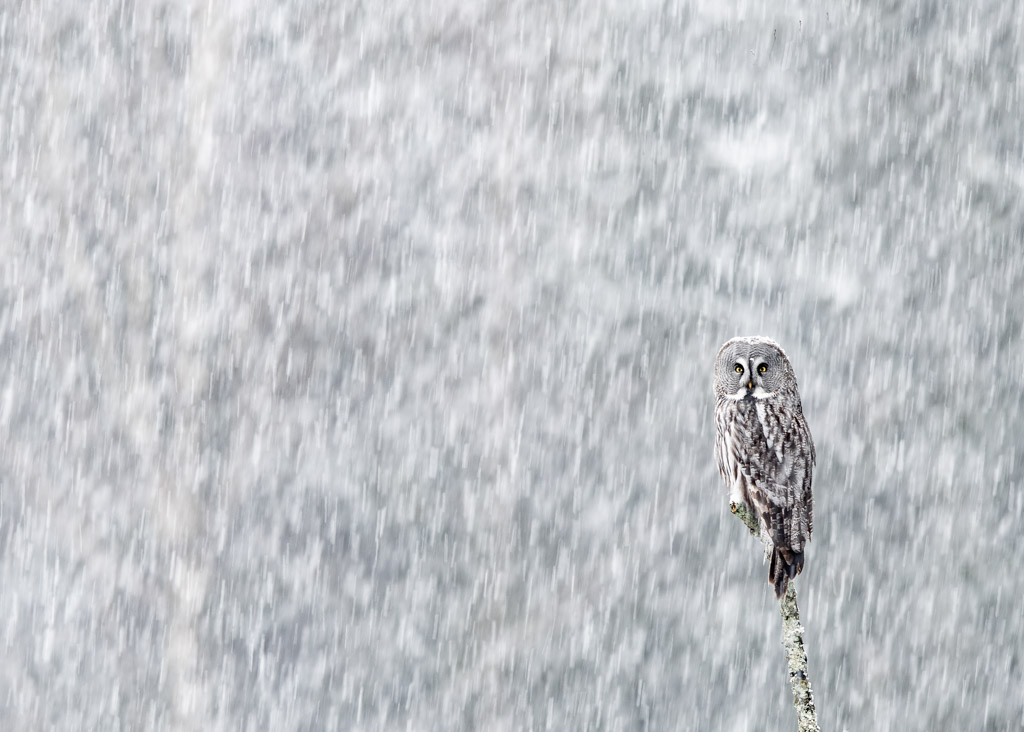
Great Grey Owl, Terje Kolaas
The media work done by NPOTY is also impressing. Thanks to their job my photo has reached an audience way outside my normal scope. It is surreal to see my photo published by global media concerns such as The Times, CNN and BBC. And as a result of that, many smaller medias and private persons have published and / or purchased the photo. So it definitely boosts both publicity and business.“
Social Media
“I have to admit that I have not updated my website since 2017 and I am terrible with facebook. Most of my publishing is on Instagram (where I have 30,000 followers). Instagram offers me information and inspiration. Here you get impulses and there is a low threshold for contacting other photographers. I believe it is worth its weight in gold.”
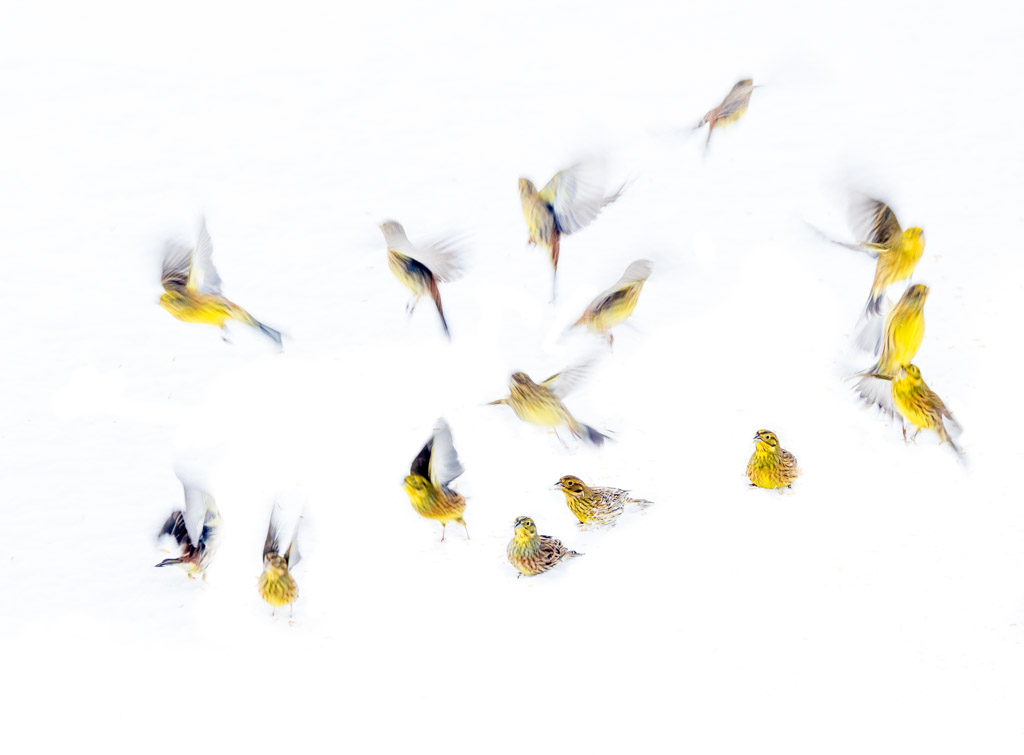
Yellowhammer, Terje Kolaas
Covid-19 effects
“Despite having to cancel some scheduled trips, COVID-19 increased my photo productivity! Social activities were kept to a minimum, guiding stopped due to travel restrictions and university education stopped due to closure. Up in the mountains or in the woods, social distancing is not an issue, so I have spent a lot more time with my camera in the field than I normally could.
Flexible working hours have proved to be very important to make the most of the rare occasions when they arise, such as the two days of snow in April that made the winning photo possible. If I was tied to the office or class at that time, I would never have been able to take advantage of those great conditions. So freedom and flexibility offer a huge advantage when it comes to wildlife and wildlife photography. Some situations can be unique and then it is now or never!”
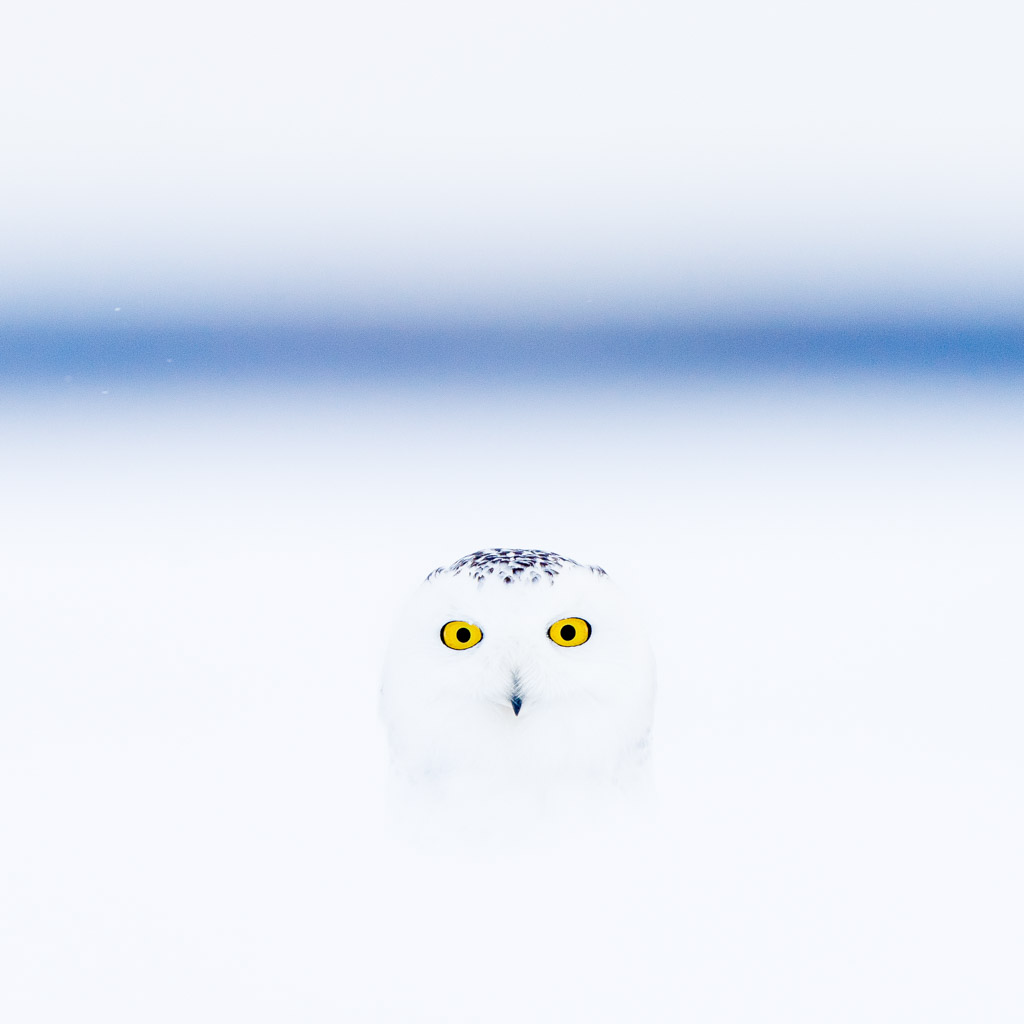
Snowy Owl, Terje Kolaas
At the end of the interview I asked Terje Kolaas the question: “if you could ask another nature photographer one question, who would that be and which question would you ask?
Terje Kolaas gave it some thought and answered: “I would ask the extremely good and productive Paul Nicklen; Please, take me with you!”.
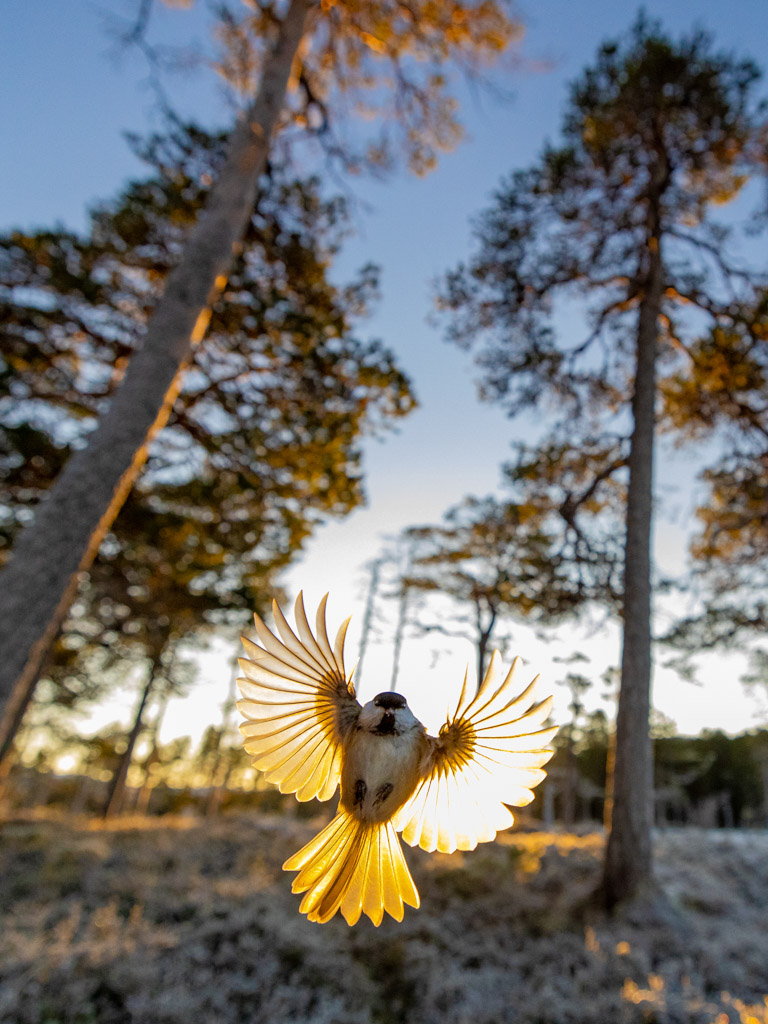
Willow Tit, Terje Kolaas





